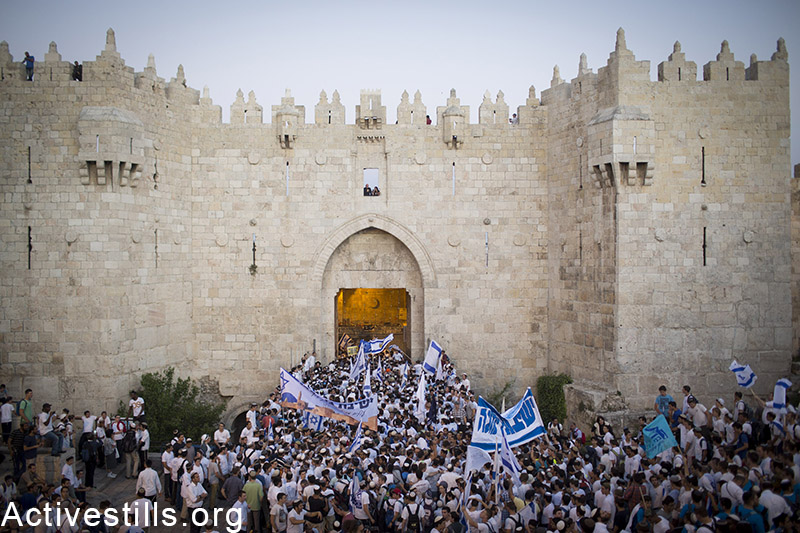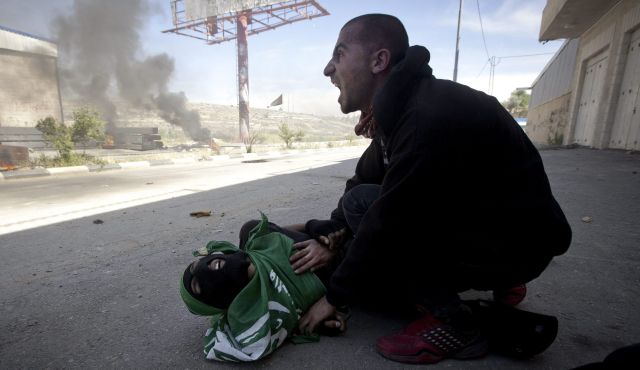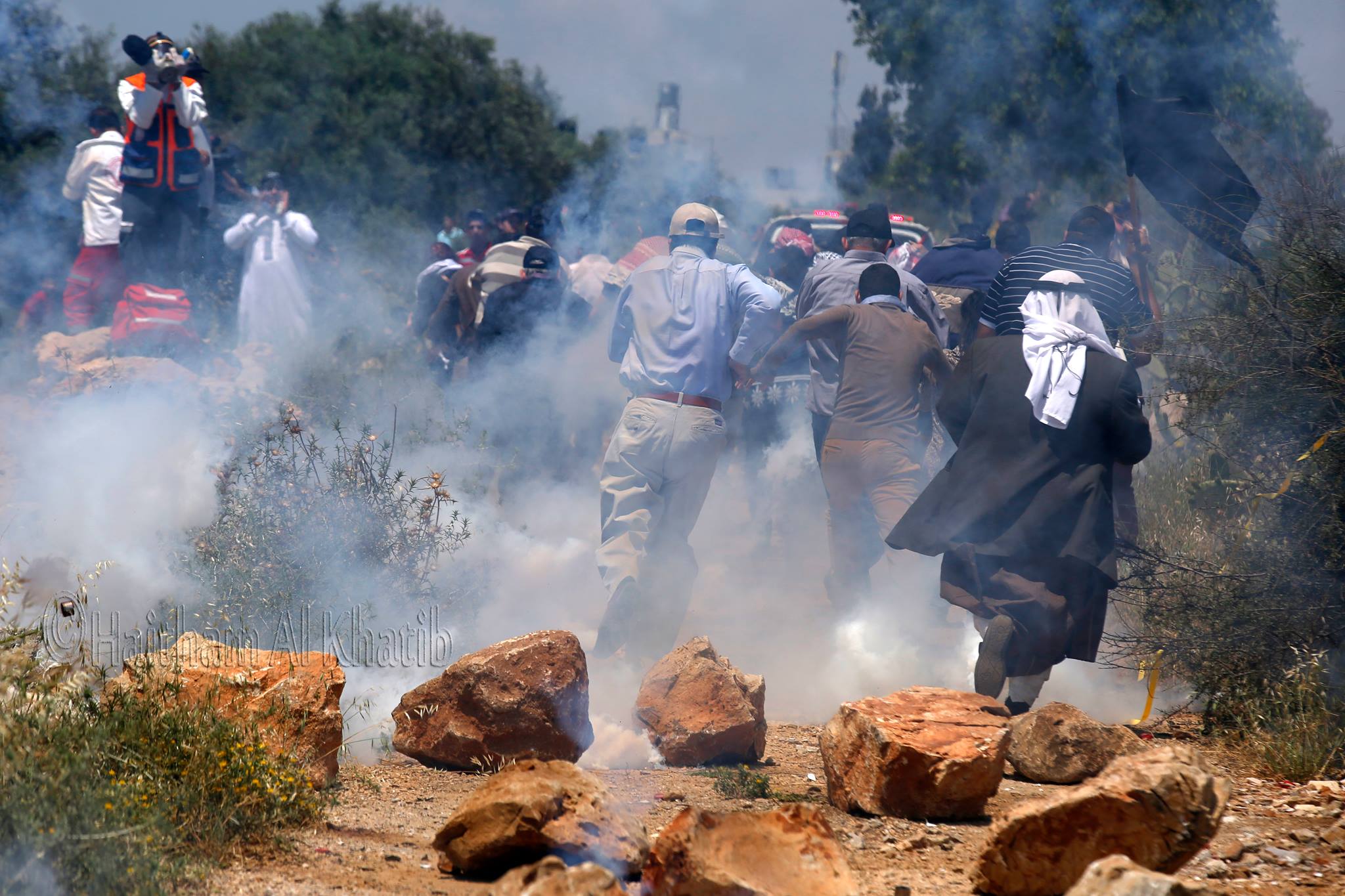Tag: Demonstration
-

Jerusalem Day: Palestinians met with extreme violence
On Sunday 17th May 2015, I witnessed some of the most violent and painfully blatant acts of Apartheid since my time in Palestine. I went to Al Quds for the annual ´Jerusalem Day´, to document the racist chants, commonly known to occur. ‘Jerusalem Day’, or ‘Yom Yerushalayim’ is a zionist celebration of the 6 day…
-

Recollection and memory, Al-Nakba continues
15th May 2015 | Karam (Muhannad) | Ofer military prison, Occupied Palestine The following post is written by the medic that was present on the scene on May 15th 2014, during the killing of Mohammad Odeh and Nadeem Nuwwarah as protesters commemorated al-Nakba near Ofer Military Prison. During Nakba day commemoration, Birzeit’s student council were trying to…
-

Day of Rage: commemorating Nakba day in Ni’lin
15th May 2015 | International Solidarity Movement, Al Khalil Team | Ni’lin, Occupied Palestine On Friday 15th May 2015, hundreds of Palestinians from all over the West Bank traveled to Ni’lin for a mass protest commemorating the 1948 Nakba (‘catastrophe’). The local villagers were joined by a large amount of other Palestinian protesters, as well as Israeli and international solidarity…
